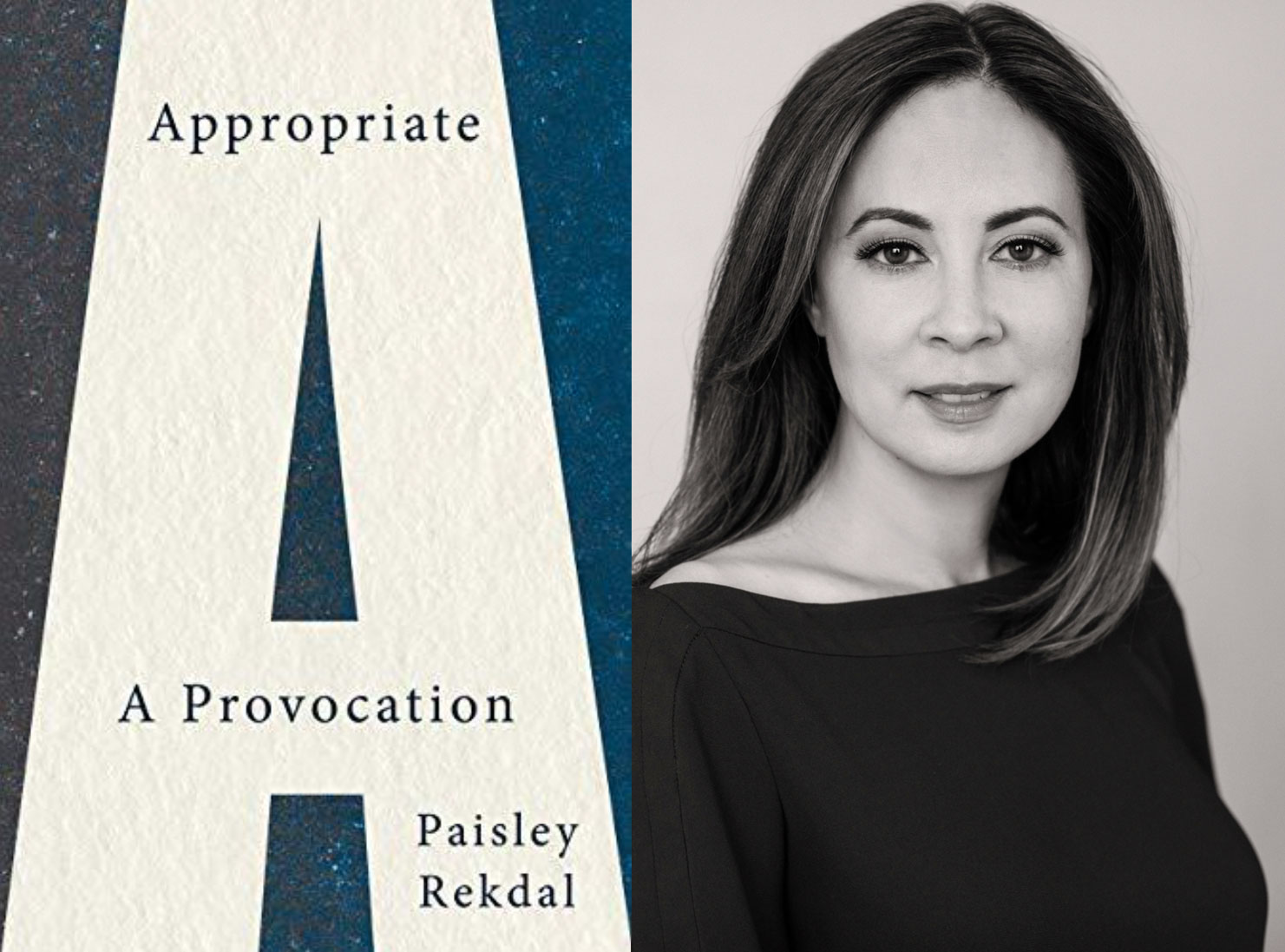
"APPROPRIATE: A PROVOCATION"
Q&A With Paisley Rekdal
In her recently published book, Paisley Rekdal, professor of English and Utah’s Poet Laureate, discusses the topic of cultural appropriation when it comes to writing.
"Appropriate: A Provocation" delves into topics such as How do we define cultural appropriation? Who can write what? Who can write in the voice of another, and should we?
Q: Tell us about your new book "Appropriate: A Provocation"?
The book examines cultural appropriation in literature, first by breaking down all the different types of appropriative literary practices that occur in writing (many of which are practices that we approve of, by the way), then by breaking down what we think we mean when we talk about race and identity. I then spend time considering specific poems, short stories and novels published in the last century that are appropriative in one way or another to see what strategies they use to good, and ill, effect. I’m not interested in a “yes/no” debate around around cultural appropriation, since that would force me and readers into defending slippery, maybe even untenable positions. I had to take a more complex series of questions into consideration. What desires—personal and cultural—may be on display in a work of art engaged in appropriation? Are there any other terms we could use to distinguish between literary works that appropriate, or approximate, identities respectfully and works that do damage? Are there actual strategies that writers could imagine and take that would lead to better (i.e., more realistic, humane and true) portrayals of people outside their own identity categories?
Q: How did the idea for this book come about?
After twenty-five years of teaching, and over thirty years of poorly managed conversations and debate about what constitutes cultural appropriation in literature, I wanted to sit down and articulate—for myself, if for no one else—what literary appropriation is. Is it always wrong? What does “wrong” mean? Can an appropriative work both be artistically successful and an ethical failure? And what would “failure” mean, exactly?
Q: Why do you think it is important to discuss cultural appropriation in the world of literature and writing, not only right now but moving forward?
For many reasons, we are currently in a place where people are happy to consign certain books and authors to the “Do Not Read” pile, and to work to abolish particular literary practices. While I’m personally sympathetic to many of these feelings, I also understand that eventually our writers of today too will seem out of fashion. If we want to spend our lives as readers and writers, we have to be flexible enough to converse with texts from a wide variety of cultures, times and positions. We don’t have to agree with everything we read—frankly, we shouldn’t—but we have to believe we are intellectually, ethically, and critically nimble enough to tackle texts that challenge our core perception of ourselves.
Q: Is there anything you discovered or learned while you were writing this book that surprised you?
I thought I would end up having a very negative view about appropriation as a whole, largely because my own experience of seeing appropriative work out in the world was negative—we usually publicize the massive, if accidental, failures rather than the successes. But the more I spent time thinking about appropriation, the more I saw it as a process each one of us is engaged in, either consciously or unconsciously. Appropriation is deeply tied into the artistic practice itself, and the idea that only one group or kind of people can appropriate misses how appropriation is a tool everyone uses, if with different cultural effects. Appropriation is, finally, about the fluidity of power, and the transgressive nature of art itself.
Q: What do you hope readers will take away from "Appropriate: A Provocation"?
I hope readers will start seeing the value of close-reading poems, stories and novels, and also understand the real impact that diversity (or the lack of diversity) has on the publishing industry, and our own ability to imagine and recognize the “authentic” narratives of people unlike ourselves. One of the things I enjoyed the most about writing this book was spending time close-reading characters and poems to understand why a specific appropriative work “succeeded” or “failed”. When faced with problematic books, we have a tendency to treat the whole text as a problem or to read with an eye for arriving at only one answer. But books contain both positive and negative portrayals; they often move and repel us at the same time. Close reading and patience are necessary skills for writers, and anyone interested in art and literature.
